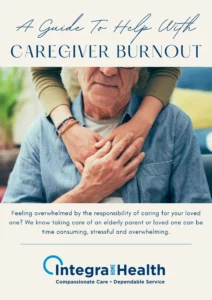With a dementia diagnosis often comes many doctor appointments and follow-up appointments. Whether you’re working with your loved one’s primary care physician or a specialist, such as a neurologist, psychiatrist, psychologist, or geriatrician, there are things you should do to prepare to get the most out of the appointment.
Get Permission in Writing
Before the doctor can speak with you directly about your loved one’s health conditions, your loved one needs to give consent, complete a health care power of attorney, and Health Insurance Portability and Accountability Act (HIPAA) release form.
The HIPAA form authorizes designated person(s) to receive health care information.
A health care power of attorney is a special kind of durable power of attorney that lets someone authorize a loved one to make medical decisions on their behalf if they become unable to.
Make a List of Questions
Have you ever gone to the doctor’s office with a bunch of questions, only to forget half of them the second the doctor walks in the door? You’re not alone. Many people report forgetting to ask their doctor all of their questions.
That’s why it’s so important to work with your loved one to write down all your questions and concerns beforehand. The doctor is an important source of support and information. If you don’t understand something, you’re allowed to ask questions until you do.
Fill Out a Doctor Visit Checklist
In addition to bringing questions, you and your loved one will also want to share your observations of changes in their behavior and actions. The Alzheimer’s Association has created a Doctor Visit Checklist to help. It’s important to be as honest and specific as possible as you fill out the form. Questions for your loved one include:
- Has your health, memory, or mood changed? How?
- When did you first notice the change?
- How often does it happen?
- When does it happen? Is it always a certain time of day?
- What do you do when it happens?
The checklist also provides room to list all medications, vitamins and herbal supplements, and medical conditions your loved one is taking or has. Because people with dementia often have many health care professionals on their team, it is important that everyone knows about all prescription and over-the-counter medications, including any vitamins or herbal supplements being taken. Bring medication containers or a complete list (including dosages) with you to each appointment.
Bring an Appointment Log
During the appointment, you’ll want to take note to help keep the family informed and ensure important information is not omitted when providing other doctors with comprehensive records of your loved one’s health history.
The Alzheimer’s Association has created an Appointment Log to help you with this. It includes room to jot down your top three concerns, to-dos, and other notes. The doctor will appreciate that you have planned for the appointment, and you will have peace of mind knowing you have a record of what happened.
Doctors are a critical member of the support structure that you will need as you care for someone with dementia. They can help you navigate the next steps as the disease progresses and your loved one requires more care.

